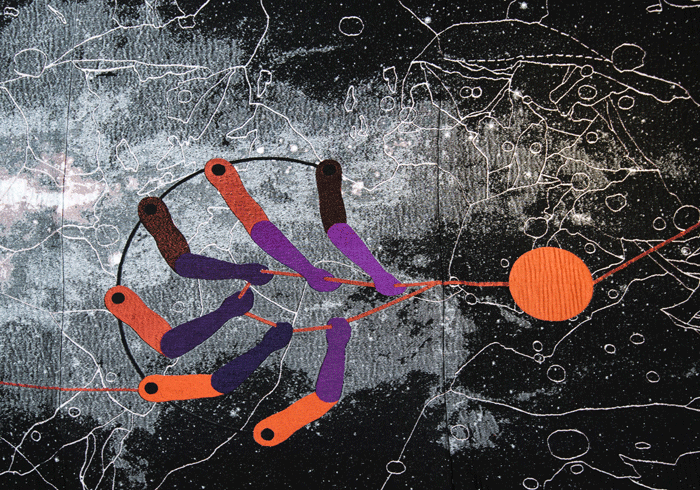Otobong Nkanga is nominated for Artes Mundi 8 alongside Anna Boghiguian, Bouchra Khalili, Trevor Paglen and Apichatpong Weerasethakul. The biannual prize is awarded to international ‘artists who directly engage with everyday life through their practice and who explore contemporary social issues across the globe’, with the shortlist selected from over 450 nominations spanning 86 countries. An exhibition of the shortlist is now open at National Museum Cardiff and the winner will be announced 24 January. ArtReview is a media partner of Artes Mundi 8.
Artes Mundi is specifically interested in everyday life, what role do you see art playing in vernacular culture?
The ‘vernacular’ is a very tricky thing. The vernacular is always in flux; I’m quite critical of the term. It implies that there is a break between it and all other possibilities of culture. This division is one that has grown up historically to suggest that one group does not, or should not, interact with the other.
What strategies should an artist take to escape the insularity of the gallery?
There is the possibility of being in and out of multiple spheres, being in and out of institutions. And I think that has happened forever: if we look at artists from the Renaissance, their art existed among kings and queens, within the church, and on the street. Political art can be in a museum, because it allows a certain group of people to reflect on it, but the same artist can enter spaces outside the white cube, working with different groups, working with scientists, entering multiple representations. Showing in a place like the National Museum Cardiff is interesting because as an institution it proposes multiple viewpoints: it has a natural history department, a geology section and so on. All of which attract different publics.
In these intemperate times, should art seek to foster unity or to provoke opposition?
With art making you should never start off knowing, or thinking you know, what the end artwork will do. Art should not be conditioned with a given aim, but come from a place of experimentation and research. Art is also unpredictable: what might be unifying one time in one place, will provoke a huge reaction in another.
We never see the result of an artwork, the results an artwork produces within society of within an individual viewer, but we know that it has the possibility of shifting the brain, changing one’s thinking. That result might take time though.
What does being nominated for a prize mean to you?
Most of those nominated are friends! The sense of competition then does not even come into this!
Online exclusive published on 17 January 2019
